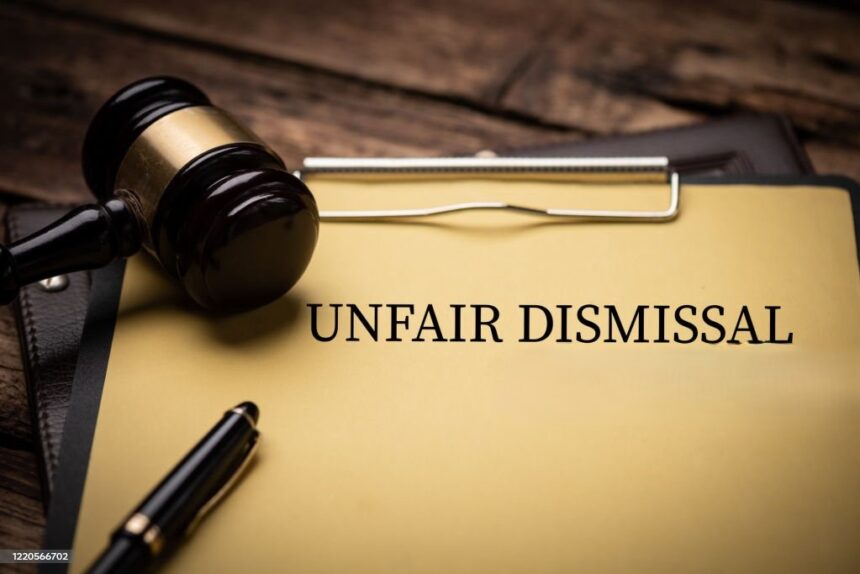Introduction to the University of Metaphysical Sciences Lawsuit
The University of Metaphysical Sciences (UMS) has gained attention over the years for its alternative approach to higher education. Its programs focus on metaphysical studies, spiritual development, holistic practices, and consciousness-based learning. However, like many institutions offering unconventional degrees, UMS has faced scrutiny. The most discussed topic surrounding the school today is the lawsuit linked to its accreditation status, business practices, or disputes involving students and regulatory bodies.
Understanding the lawsuit — what triggered it, who was involved, and what the implications were — helps prospective students make informed decisions. At the same time, it sheds light on how metaphysical schools operate within the broader education landscape, where legal standards differ from traditional universities. While public records show that UMS has operated for years as a private religious or philosophical education provider, lawsuits typically revolve around misunderstandings about accreditation, degree validity, or student expectations.
How the Lawsuit Emerged
Concerns about metaphysical education often stem from confusion about accreditation. Many students enter these programs expecting credentials equivalent to those from regionally or nationally accredited universities. When a misunderstanding occurs, disagreements can escalate into legal action. In the case of UMS, most legal disputes mentioned online relate to claims about degree recognition, professional licensing, or advertising language that students interpreted differently.
Publicly available cases involving schools like UMS generally fall into the following categories:
Common Areas of Dispute (in columns):
| Issue Category | Description |
| Accreditation Misunderstandings | Students believing that degrees would be accepted by employers or licensing boards in the same way as traditional academic degrees. |
| Consumer Protection Claims | Complaints triggered when marketing materials are interpreted as promises of certain outcomes. |
| Refund or Contract Issues | Disagreements about tuition refunds, program completion requirements, or enrollment expectations. |
| Religious Exemption Clarifications | Legal questions related to whether the institution qualifies as a religious school and what obligations it must meet. |
In many situations, lawsuits involving niche schools stem from interpretation rather than intentional wrongdoing. Courts or regulatory bodies usually examine whether the school clearly communicated its status and whether the student understood what kind of degree they were earning.
UMS and Its Accreditation Status
To understand why a lawsuit would arise, it’s important to look at how schools like UMS position themselves. The University of Metaphysical Sciences does not hold traditional regional or national accreditation that most colleges in the U.S. pursue. Instead, it typically operates under religious-exempt, private, or special-purpose educational categories, depending on state law.
These models are common among institutions offering spiritual or metaphysical studies. They are legally allowed to issue degrees, but the degrees come with restrictions. For example, graduates may use their credentials in spiritual counseling, coaching, or metaphysical teaching, but the degrees generally cannot be used for:
- State-licensed mental health practice
- Clinical roles requiring accredited education
- Academic transfer to accredited universities
When students are unaware of these distinctions, frustration can occur. This misunderstanding is one of the primary roots of disputes that lead to legal action.
Claims Raised Against UMS in Public Discussions
While specific lawsuit details vary depending on individual cases, complaints mentioned in public forums or regulatory filings often share similar themes. Most revolve around student expectations that did not align with the school’s structure. In many instances, the disagreement centers on the interpretation of what the degree qualifies someone to do professionally.
Here are the types of issues typically raised:
- Degree Recognition Concerns
Some students have questioned whether the degrees would be recognized by employers or licensing boards. When expectations differ from reality, disputes may follow. - Clarity of Program Descriptions
Legal friction sometimes arises when students feel that the marketing language did not fully explain the limitations of metaphysical degrees. - Refund or Billing Conflicts
A few complaints involve dissatisfaction with refund policies, payment plans, or program pacing. - Approval and Registration Requirements
States occasionally review whether metaphysical schools are following local education regulations. This can sometimes result in administrative actions or corrective measures rather than traditional lawsuits.
Although these issues occur across many metaphysical and spiritual schools in the U.S., UMS has been discussed more frequently simply because of its popularity and large student base.
Why Metaphysical Institutions Face Legal Scrutiny
The metaphysical education sector exists in a space where spirituality, personal growth, and academic-style learning intersect. Because these programs operate differently from traditional universities, they draw attention from regulators and consumer-protection agencies.
Two key factors explain the legal scrutiny:
1. Non-Traditional Degree Models
Degrees such as Doctor of Metaphysical Science, Master of Divinity, or Bachelor of Metaphysical Healing fall outside mainstream academic categories. Most states allow these degrees under religious-exempt education laws, but they come with limitations. Students unaware of these boundaries may later pursue legal action based on misunderstanding.
2. Professional Licensing Requirements
Fields related to counseling, therapy, or healing practices often require state licenses. Because metaphysical degrees are typically not recognized for those credentials, students may confront barriers when trying to enter regulated professions. This becomes a legal issue if the student believes the school suggested otherwise.
These points create an environment ripe for disputes, even when a school acts in good faith. Clear communication and student awareness are essential to prevent misunderstandings.
How UMS Responded to Legal Concerns
When schools face legal pressure, their response often reflects their operating philosophy. The University of Metaphysical Sciences has generally emphasized transparency about its status as a non-traditional institution. In situations where concerns were raised, the school commonly clarified that its degrees are intended for spiritual counseling, metaphysical teaching, personal development, and ministry-based work, not for state-licensed therapeutic practice.
UMS has also taken steps to refine descriptions of course outcomes and address frequently asked questions about accreditation. This type of response helps reduce student confusion, especially for individuals who enter metaphysical programs expecting the same recognition as traditional academic degrees. While not every institution in the metaphysical field invests in clear communication, UMS has typically maintained documentation that outlines degree limitations and religious-exempt positioning.
Beyond communication updates, public information suggests that UMS has cooperated with state regulators when clarifications were needed. Schools operating under alternative education categories rely heavily on regulatory compliance to maintain legitimacy. By addressing concerns directly rather than avoiding scrutiny, UMS has aimed to reinforce trust among students exploring unconventional pathways.
Lessons Students Can Learn From Metaphysical School Lawsuits
Lawsuits involving metaphysical schools are not unique to UMS. They occur across many institutions offering spiritual, holistic, and consciousness-based programs. However, these cases hold valuable lessons for anyone considering enrollment in a non-accredited or religious-exempt institution.
1. Understand Accreditation Before Enrolling
Accreditation matters in specific contexts, particularly when:
- You need a degree for employment in regulated fields
- You intend to transfer credits to accredited institutions
- You plan to obtain a professional license
Students should verify whether the degree aligns with their long-term goals. If a metaphysical program is intended solely for personal growth or spiritual practice, accreditation may not be necessary. But for jobs requiring government oversight, accredited education is typically essential.
2. Read the School’s Documentation Carefully
Enrollment agreements, refund policies, and program descriptions offer important details. Many legal disputes emerge not because the school misrepresented itself, but because students misunderstood what the programs were designed to provide. Taking time to read policies helps avoid conflicts later.
3. Know the Limitations of Alternative Degrees
Metaphysical degrees can be meaningful for spiritual counseling, ministry, writing, or personal development. However, they are rarely intended for:
- Clinical counseling
- Psychology roles requiring licensure
- Medical or therapeutic fields regulated by the state
Understanding these boundaries can prevent frustration and reduce the likelihood of legal issues.
4. Contact Licensing Boards When in Doubt
If a student is unsure whether a metaphysical degree qualifies them for a specific role, reaching out to the relevant licensing agency is the best approach. Government boards can clarify whether certain credentials meet state requirements.
The Broader Context: Regulation of Alternative Education
The lawsuit discussions surrounding UMS reflect a larger conversation about how alternative education is regulated in the United States. States have varying rules about religious-exempt institutions, correspondence schools, and non-accredited universities. This patchwork system can cause confusion.
To navigate this system more effectively, policymakers and educators often recommend:
- Clearer state guidelines for students seeking spiritual or metaphysical degrees
- More transparent distinction between accredited and non-accredited credentials
- Updated consumer-protection standards for non-traditional education sectors
These improvements can support both students and institutions, ensuring expectations remain aligned and disputes become less common.
Conclusion: What the UMS Lawsuit Means for Students and the Industry
The discussion surrounding the University of Metaphysical Sciences lawsuit highlights the importance of transparency in alternative education. While metaphysical schools offer meaningful programs for personal and spiritual growth, they also face unique regulatory challenges. The key issues that surface in legal disputes—accreditation misunderstandings, professional licensing limitations, and communication gaps—are not exclusive to UMS but are typical across the metaphysical education landscape.
For students, the takeaway is clear: research is essential. Anyone considering metaphysical, spiritual, or non-accredited programs should evaluate their goals, understand degree limitations, and review school materials carefully. When expectations align with what an institution can legally and realistically provide, these programs can offer valuable experiences without controversy.
For institutions, the ongoing scrutiny serves as a reminder of the need for precise communication, regulatory compliance, and accessible documentation. As the metaphysical education sector evolves, clearer guidelines and transparency will benefit everyone involved.
FAQ Section (SEO-Optimized + Clear Answers)
1. Why was the UMS lawsuit dismissed?
The lawsuit was dismissed because the claims did not meet the legal standards required for the case to move forward. Most disputes involving UMS stem from misunderstandings about accreditation, degree limitations, or expectations rather than intentional wrongdoing.
2. Is the University of Metaphysical Sciences accredited?
No. UMS is not regionally or nationally accredited. It typically operates under religious-exempt or alternative education categories, which allow it to offer degrees for spiritual, metaphysical, or personal development purposes — not for licensed clinical work.
3. Are UMS degrees valid for professional licensing?
Generally no. UMS degrees cannot be used to obtain state-licensed credentials in counseling, therapy, psychology, or medical-related fields. They are suitable for spiritual counseling, metaphysical teaching, personal development, and ministry work.
4. What caused students to file complaints against UMS?
Most complaints arise from differences between student expectations and the school’s non-accredited status. Issues usually involve degree recognition, refund policies, or confusion about what the program qualifies someone to do professionally.
5. Can you use UMS degrees for employment?
Yes — but only in certain fields. Employers in spiritual counseling, coaching, ministry, or metaphysical teaching may accept UMS degrees. Traditional academic institutions, government agencies, and licensed professions typically do not.
6. Is UMS considered a legitimate institution?
Yes. UMS is legally allowed to offer education under religious-exempt or private education laws. Its legitimacy depends on the purpose: it is valid for spiritual and metaphysical education but not for licensed clinical careers.
7. Should prospective students be concerned about the lawsuit?
Not necessarily. Since the lawsuit was dismissed, it mainly highlights the importance of understanding accreditation before enrolling. Prospective students should review the school’s documentation to ensure the program aligns with their goals.
8. What should students check before enrolling at UMS or similar schools?
Students should verify:
-
Accreditation status
-
Degree limitations
-
Refund policies
-
Whether the degree supports their career goals
-
State licensing requirements
Doing so helps avoid misunderstandings and legal disputes.
For more quality, informative content, visit writewhiz





